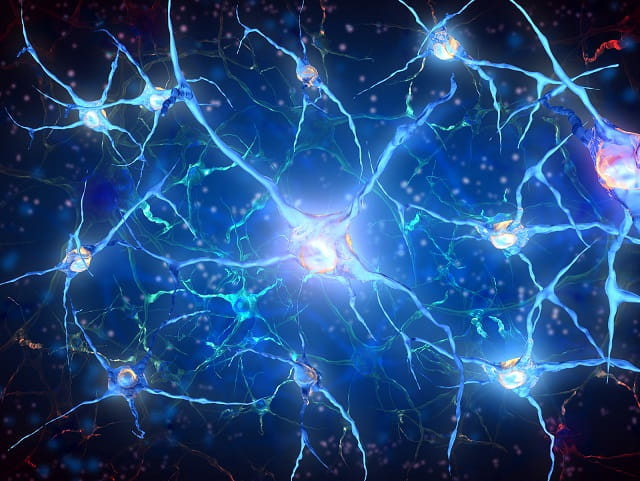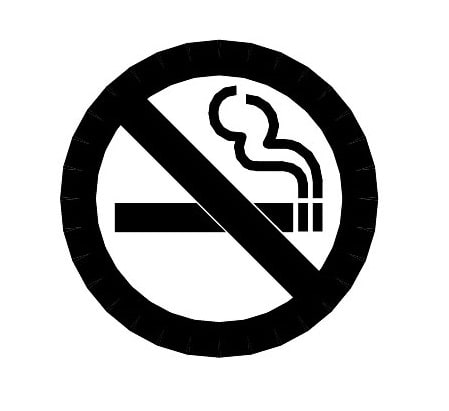Can Smoking Cause Muscle Cramp?
Are you a smoker who is experiencing regular episodes of muscle cramps?
You may notice that the more you smoke the more you experience these cramps.
But why is this? Here we will look at the reasons why smoking can cause an increased risk of muscle cramp.
Author: Josh Matthews (BSc MS)
Does Smoking Cause Muscle Cramp?
Muscle cramps can be caused by a variety of factors, but smoking itself is not directly linked to muscle cramps.
However, the habit of smoking can indirectly contribute to conditions that may lead to muscle cramps and worsen their severity.
Poor Circulation and Muscle Cramps
Smoking is known to damage the cardiovascular system, leading to poor circulation.
Smoking causes blood vessels to constrict (Vasoconstriction), reducing the flow of oxygen-rich blood to various parts of the body, including muscles.
When blood flow to the muscles is compromised, it can result in muscle fatigue and cramps.
Proper circulation is essential for delivering oxygen and nutrients to muscles, and when this process is hindered by smoking, muscles are more prone to cramping.
Dehydration and Electrolyte Imbalances
Smoking can contribute to dehydration, a condition where the body loses more fluids than it takes in.
Dehydration can lead to electrolyte imbalances, especially if the lost fluids are not replenished adequately.

Electrolytes, such as potassium, sodium, calcium, and magnesium, are vital for muscle function. When these electrolytes are out of balance, it can result in muscle cramps.
Dehydration, in combination with electrolyte imbalances, can be exacerbated by smoking and increase the likelihood of experiencing muscle cramps.
Nutritional Deficiencies
Smoking interferes with the body’s ability to absorb essential nutrients.
Some of these nutrients, like magnesium, play a crucial role in muscle function.
Magnesium deficiency can cause muscle cramps and spasms.
Smokers may be at a higher risk of magnesium deficiency due to the effects of smoking on nutrient absorption, potentially leading to muscle cramps.
Reduced Physical Fitness and Muscle Cramps
Smoking impairs lung function, making it more challenging for individuals to engage in physical activity.
Reduced physical activity can lead to muscle weakness and fatigue, increasing the likelihood of muscle cramps during or after exercise.
Additionally, smoking can cause shortness of breath and decreased endurance, making it difficult for smokers to engage in regular physical activities, which are essential for overall muscle health.

Increased Stress and Muscle Tension
Smoking is often used as a coping mechanism for stress.
Chronic stress can lead to muscle tension and discomfort.
While this muscle tension is different from the sudden, intense pain of a muscle cramp, it can contribute to overall muscle discomfort and may exacerbate cramping episodes.
Increased Risk of Underlying Health Conditions
Smoking is a known risk factor for various cardiovascular and respiratory conditions.
Some of these conditions, such as peripheral artery disease (PAD), can affect blood flow to the extremities, leading to muscle cramps, especially during physical activities.
While smoking is not a direct cause of muscle cramps, it significantly impacts overall health and well-being.
What Are The Benefits of Quitting Smoking To Your Muscle Health?
When someone quits smoking they may experience the following benefits:
Improved Circulation
Quitting smoking improves blood circulation, ensuring that muscles receive an adequate supply of oxygen and nutrients.
Reduced Dehydration
Without the dehydrating effects of nicotine, individuals who quit smoking are better able to maintain proper hydration levels, reducing the risk of electrolyte imbalances.

Increased Nutrient Absorption
Smoking cessation improves the body’s ability to absorb essential nutrients, including magnesium and potassium, which are vital for muscle function.
Increased Physical Activity
People who quit smoking often experience improved lung function and stamina, enabling them to engage in regular physical activities.
Regular exercise strengthens muscles and reduces the risk of cramps.
Decreased Stress Levels
Quitting smoking can lead to reduced stress and anxiety, lowering the likelihood of muscle tension and discomfort.
Conclusion
While smoking itself does not directly cause muscle cramps, its detrimental effects on circulation, hydration, nutrient absorption, and overall physical health can indirectly contribute to conditions that increase the risk of muscle cramps.
Quitting smoking is a crucial step toward improving overall health and reducing the likelihood of muscle cramps and various other health issues associated with smoking.
Check curemycramp.com for more articles like this
Disclaimer: All information on this site is for information only, and not intended to replace the advice of a qualified medical professional. curemycramp.com and any writers associated with this website accept no responsibility for circumstances arising from the use of information on this site, without consulting a registered health professional first.

